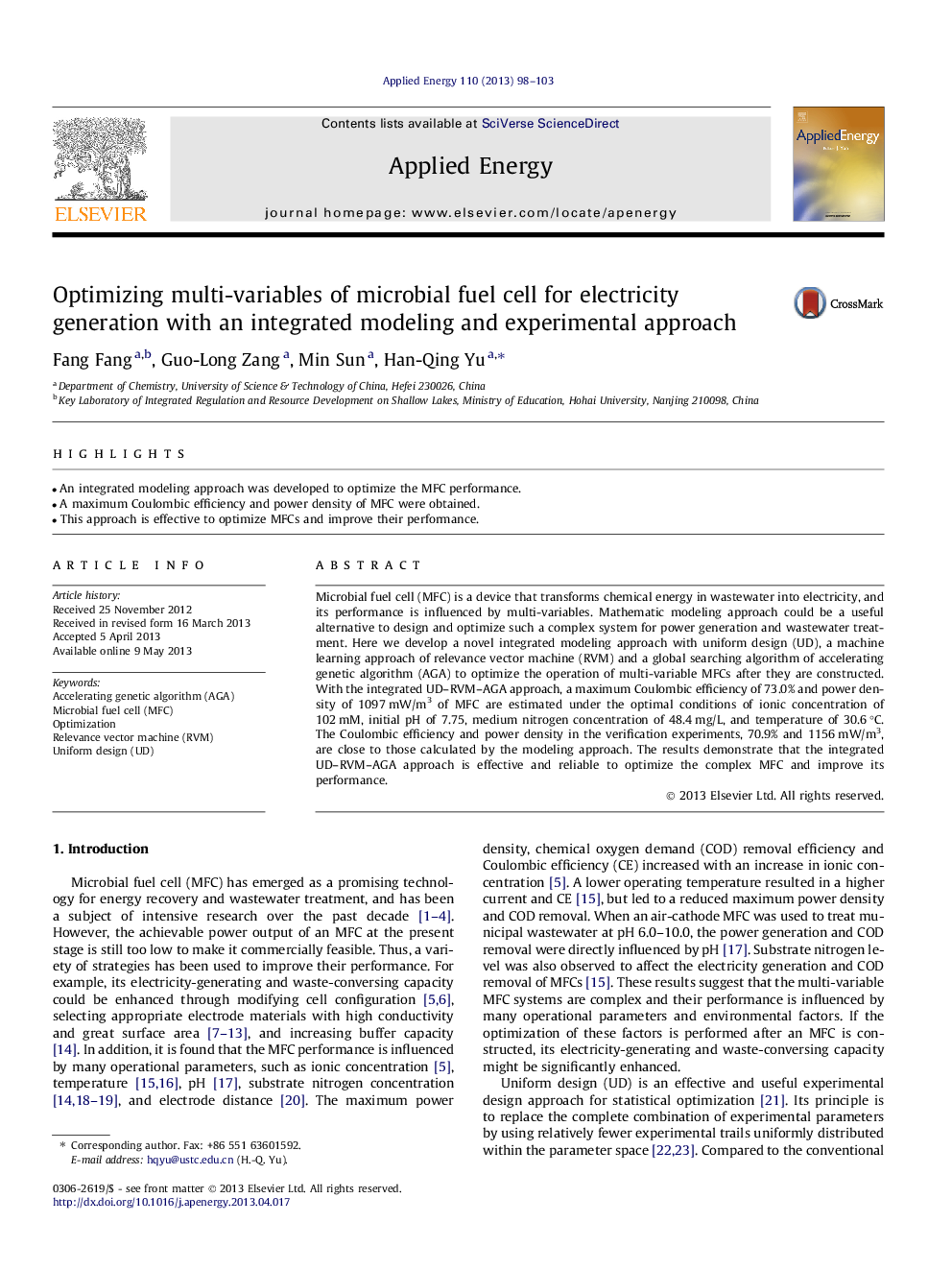| Article ID | Journal | Published Year | Pages | File Type |
|---|---|---|---|---|
| 243054 | Applied Energy | 2013 | 6 Pages |
•An integrated modeling approach was developed to optimize the MFC performance.•A maximum Coulombic efficiency and power density of MFC were obtained.•This approach is effective to optimize MFCs and improve their performance.
Microbial fuel cell (MFC) is a device that transforms chemical energy in wastewater into electricity, and its performance is influenced by multi-variables. Mathematic modeling approach could be a useful alternative to design and optimize such a complex system for power generation and wastewater treatment. Here we develop a novel integrated modeling approach with uniform design (UD), a machine learning approach of relevance vector machine (RVM) and a global searching algorithm of accelerating genetic algorithm (AGA) to optimize the operation of multi-variable MFCs after they are constructed. With the integrated UD–RVM–AGA approach, a maximum Coulombic efficiency of 73.0% and power density of 1097 mW/m3 of MFC are estimated under the optimal conditions of ionic concentration of 102 mM, initial pH of 7.75, medium nitrogen concentration of 48.4 mg/L, and temperature of 30.6 °C. The Coulombic efficiency and power density in the verification experiments, 70.9% and 1156 mW/m3, are close to those calculated by the modeling approach. The results demonstrate that the integrated UD–RVM–AGA approach is effective and reliable to optimize the complex MFC and improve its performance.
